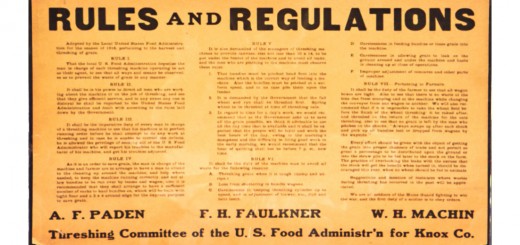Bill Bonner – The Means Are the Ends

Today’s post is a profile of Guru investor Bill Bonner, who appears in John Mauldin’s book Just One Thing. His chapter is called The Means Are the Ends.
Contents
Bill Bonner
Bill Bonner is the boss of Agora publishing, a financial newsletter company that publishes doom-laden titles like The Daily Reckoning (www.dailyreckoning.com).
- Until recently, Bill also published Money Week (in which he has a back page column) here in the UK but that title recently transferred back to Dennis Publishing. (( Which is itself up for sale by the trustees of the Felix Dennis’s charity which is planting the Heart of England forest ))
He also writes books.
According to John, he has “a strong libertarian bent, mixed in with Austrian economics.”
- And as you will see from his essay – which is so personal, it can only really be told in Bill’s own words – he doesn’t approve of “government meddling with the economy”.
Bill appears in John Mauldin’s book Just One Thing.
- His chapter is called The Means Are the Ends.
The Means are the Ends
Bill is not a fan of the dismal science (“Economics is dismal, but it isn’t science.”), nor of economists.
We keep our eye on economists and politicians the way children watch clowns; we can’t wait to see them get whacked in the head or trip over each other.
Some want power, others glory, others money – and some want all three.
Bill resents their attempts to give us moral purpose:
It is not enough that we should each seek happiness in our own private way, we must free the Sudetenland!
Abolish poverty! Make the world safe for democracy! Full employment! A minimum wage!
Keynes
Bill describes John Maynard Keynes’ idea that recessions could be tackled by increasing the availability of credit, and replacing lost consumer and business spending with increased governmengt spending.
- He even suggested hiding bottles of money around town – an early version of helicopter money.
What Bill wants to know is:
Where would this new money come from? Whose money was it?
And if the owner of the money thought it best to save it, rather than spend it, what made economists think they knew better?
All the Keynesians had done was to substitute their own guesses for the private, personal, economic decisions of millions of ordinary citizens.
Bill describes the effects of the earliest interventions in the US economy – inflating the bubble of the late 1920s, then derailing the recovery in the 1930s.
The cobbler
Every time political means are used, they interfere with the private, civilized economic arrangements that actually get people what they want.
One man makes shoes. Another grows potatoes. The potato grower goes to the cobbler to buy a pair of shoes. He must exchange two sacks of potatoes for one pair of penny loafers.
But then the meddlers show up and tell the cobbler he must charge three sacks so that he can pay one in taxes. And then he needs to put an alarm system in his shop, buy a hardhat, pay his helper minimum wage, and fill out forms.
When the potato farmer finally shows up at the cobbler’s, he is informed that the shoes will cost seven sacks of potatoes!
“No thanks,” says the potato man, “At that price, I can’t afford a pair of shoes.”
What the potato grower needs, say the economists, is more money! The money supply has failed to keep pace.
Gold
Bill likes money backed by gold, rather than government issued “fiat money”.
In the many years since the creation of the Federal Reserve System as America’s central bank, gold has remained as steadfast and immobile as ever.
An ounce of it today buys about the same amount of goods and services as an ounce in 1913. Guess how much a dollar is worth today? Five cents.
Mind your own business
Bill is no fan of the “Great Man” theory of history, and would prefer that leaders mind their own business.
The Great Leader never doubts that he is making a better world.
We’re not smart enough to know whether one person’s plan for world improvement will actually make the place better.
All we know is whether the means the person uses are civilized.
Nothing much can be done to improve on the private arrangements of millions of free people.
There are no better means for people to get what they want than the private, civilized, voluntary arrangements that they work out among themselves.
People already know what they want. Their private arrangements are all designed to help them get it.
Earn it
All humans want more or less the same things – power, money, prestige, status.
Getting them by civilized means – that is, working for them, earning them, deserving them – is a long and difficult process.
The Means are The Ends
It is not for us to know how things work out. The ends are beyond us. We never know what will happen.
All we have is the means. If we use the means of civilized people – the economic means – we will not necessarily get what we want, but at least we will deserve it.
It’s a strange little essay, (( And four times longer than this article )) but true to what Bill writes elsewhere: leave people alone, we can’t predict the future, gold is better than paper.
- When you put it like that, it makes a lot of sense.
Until next time.


















